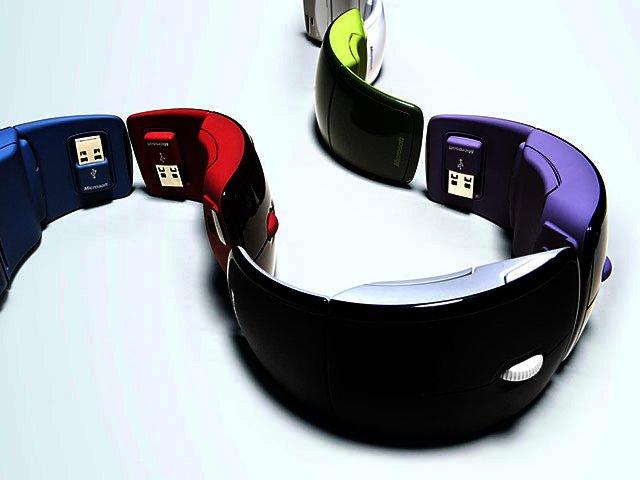What lead to the hinge idea behind the Arc Mouse?
When designing Arc, we were trying to find a form that provided comfort in the hand, but was light and pure in form language. The Arc form came about naturally through the process of finding something that just worked; there wasn’t a moment where we looked at another object and thought that we should translate it into a mouse. The inspiration was more around creating something simple and light in form – something that captured the spirit of portability. There is always a balancing act when we try to design a mouse that is very comfortable and also very portable and our team is very sensitive to this issue. To achieve comfort, we need to provide enough volume in the product to fill the palm, but it is the same volume that makes it hard to slip a standard mouse into a bag or pocket. We created the Arc Mouse to be a light form by using the negative space that an arc naturally creates. It was just a natural progression of thinking to leverage that negative space even farther by allowing it to collapse with Arc’s hinge.
Do you think that the mouse will always be with us?
Absolutely. And it is truly exciting to be part of the team that works on new designs and concepts like the Arc Mouse. There are still new ways to deliver a mouse to consumers and we are always thinking about how to push the boundaries and still deliver a fully functioning, comfortable product. From gaming to productivity to comfort, mice provide certain benefits that will never be replaced.
What would be the step up from the mouse?
There is always room to evolve and improve anything, especially electronics. Technologies are constantly changing and, as more people grow up using computers we are learning more about the need for great ergonomics. There are plenty of ways to make a mouse better or more specific to a certain need. In terms of a step up from using a mouse, the question really becomes more around what it is that needs to be accomplished. A traditional mouse is necessary for manipulating small objects or doing fine targeted work, but there are other methods or interfaces that are better for other applications. It’s all relative to the working environment and what is trying to be accomplished.
With mouse design, does form follow function or function form?
Functionality is always the key to our mouse designs. For instance, the Arc Mouse is elegant and modern in form, but the magic of the form is the functionality that it enables – comfort when open by providing palm support and compact portability when collapsed. Design isn’t about drawing a pretty picture or simply wrapping a surface over some mechanics; it is about finding the right balance between many important elements. Functionality, comfort and aesthetics are all at work together to make a strong product.
When you design, where do you draw your inspiration from?
Our design inspiration comes from many places – the fashion runway, technology trends, research on consumer needs, etc. We have a very diverse design team of 10 designers. We all have very different cultural backgrounds, educations, experiences, and interests. We use our design group meetings to share influences coming from so many different origins. Fashion (runway, sport and street), furniture, automotive, and consumer electronics are definitely among our favorites. We also love to look to graphics, interactions, art and architecture and really enjoy looking at the world to find bits of raw inspiration and put them together in different ways to create something completely new.
How long from concept to final product?
The amount of time from concept to final product depends on the program. Our typical design and development through manufacturing timeline can take about 9 months but some programs require specific research, technology development or more design iteration which can take longer. |





